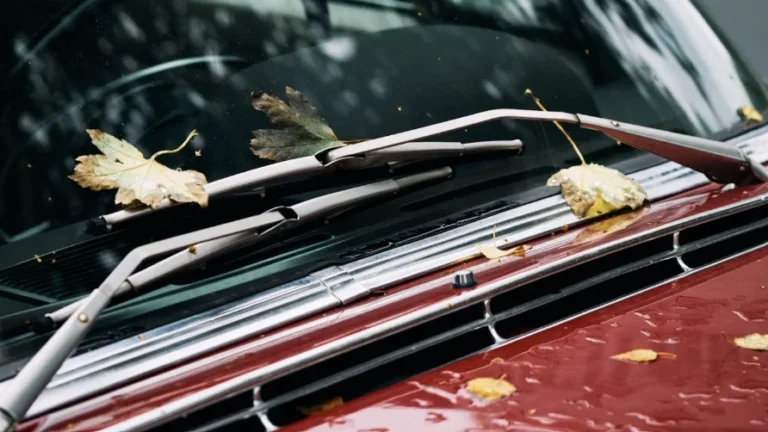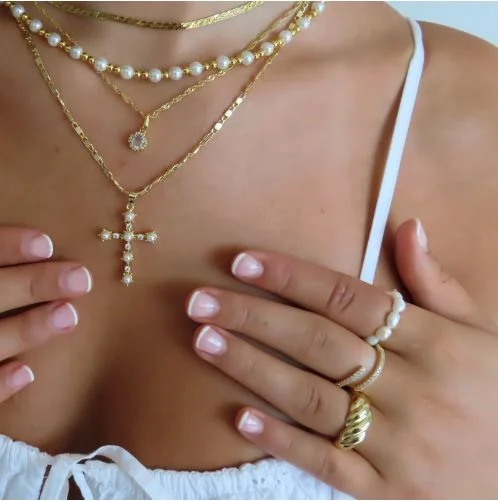Introduction
1.1 Overview of the Crossword Puzzle Culture
Crossword puzzles have become a beloved pastime for many, with their origins tracing back to the early 20th century. Over the years, crossword puzzles have evolved, becoming a staple in daily newspapers and online platforms. The New York Times (NYT) crossword puzzles are particularly revered, known for their clever clues and challenging grids. Among these, certain clues like “Tushie” stand out for their playful nature and recurring appearances.
1.2 Importance of Understanding Crossword Clues
For crossword enthusiasts, understanding the intricacies of crossword clues is essential. Each clue is a puzzle within a puzzle, and mastering these clues can significantly enhance the solving experience. The clue “Tushie,” while seemingly simple, has nuances that can challenge even seasoned solvers.
1.3 Purpose of This Guide
This guide aims to provide a comprehensive exploration of the “Tushie” crossword clue in NYT puzzles. We will delve into its meanings, common answers, solving strategies, and the broader trends in crossword puzzle design. Whether you’re a beginner or a crossword veteran, this guide will equip you with the knowledge to tackle this clue and others like it with confidence.
What is the “Tushie” Crossword Clue?
2.1 Definition and Origin of the Term “Tushie”
The term “Tushie” is a playful and informal word for the buttocks, often used in a light-hearted or affectionate manner. It originates from the Yiddish word “tuchus,” which also means buttocks. The word “Tushie” has found its way into popular culture and, by extension, into crossword puzzles where colloquial language is often employed.
2.2 Common Usage in Crossword Puzzles
In the context of crossword puzzles, “Tushie” is typically used as a clue for various synonyms of the posterior. Its informal nature makes it a perfect fit for puzzles that lean towards modern and conversational language. Over time, it has become a recurring clue in the NYT Mini Crossword and other similar puzzles.
2.3 Historical Appearances in NYT Crosswords
The “Tushie” clue has appeared multiple times in NYT crosswords, particularly in the mini puzzles where shorter answers are required. Its popularity can be attributed to its playful tone, which contrasts nicely with the more serious or cryptic clues that are common in crossword puzzles.
Common Answers for the “Tushie” Clue
3.1 Popular Synonyms Used in Crosswords
When “Tushie” appears as a clue, it often leads to a handful of common answers. Some of the most frequently seen synonyms include:
- PATOOT: A whimsical term for the buttocks, often used in humorous contexts.
- BUMS: A straightforward synonym, particularly used in puzzles requiring a shorter answer.
- ASSES: A slightly more crass term, though less frequently used in NYT crosswords.
3.2 Variations by Puzzle Difficulty
The answer to the “Tushie” clue can vary depending on the puzzle’s difficulty level. For instance:
- Easy Puzzles: Likely to use simpler, more common terms like “BUMS.”
- Medium Puzzles: Might incorporate terms like “PATOOT” or “BUTTS.”
- Hard Puzzles: Could use more obscure or playful terms such as “PATOOTIE.”
3.3 Analysis of Recent Clue Solutions
In recent years, the most common answer for the “Tushie” clue in the NYT Mini Crossword has been “PATOOT.” This reflects a trend towards using more playful language in crossword puzzles, aligning with the broader cultural shift towards informality in language.
Tips and Strategies for Solving Crossword Clues
4.1 Starting with the Easy Clues
When approaching any crossword puzzle, it’s beneficial to start with the clues you find easiest. This helps build a foundation and provides letters that can assist with more challenging clues. For instance, identifying the word “PATOOT” in a puzzle where “Tushie” is a clue can be easier if you already have a few letters in place.
4.2 Leveraging Cross-Checking Techniques
Cross-checking is a crucial technique in crossword solving. By identifying intersecting words, you can narrow down the possibilities for difficult clues. For example, if you know that the first letter of the answer is “P,” this might guide you towards “PATOOT” rather than other possible answers.
4.3 Building a Mental Database of Common Answers
Frequent crossword solvers often develop a mental database of common answers. Recognizing that “Tushie” often corresponds to “PATOOT” can speed up your solving process. This familiarity with common answers is particularly helpful in the NYT Mini Crossword, where certain clues and answers recur regularly.
4.4 Staying Updated on Pop Culture References
The NYT Mini Crossword often includes references to current events and pop culture. Keeping up with these trends can provide an edge in solving puzzles. Words like “Tushie” might become more or less common depending on their presence in popular media.
Crossword Puzzle Trends and the Evolution of Clues
5.1 Modern Trends in Crossword Puzzle Design
Crossword puzzles have evolved to reflect modern language and culture. The inclusion of colloquial terms like “Tushie” in puzzles is a testament to this trend. Puzzle creators are increasingly using language that resonates with younger audiences, making puzzles more accessible and engaging.
5.2 The Shift Toward Colloquial Language
In recent years, there’s been a noticeable shift towards the use of colloquial and slang terms in crossword puzzles. This mirrors broader cultural trends towards informality in communication. As a result, clues like “Tushie” have become more common, appealing to a more diverse audience.
5.3 How the “Tushie” Clue Reflects Puzzle Trends
The recurring appearance of “Tushie” in NYT crosswords highlights the trend towards playful and informal language in puzzles. It reflects the broader evolution of crossword puzzles from traditional and often rigid formats to more modern and dynamic ones.
Comparative Analysis: How Other Sources Cover the “Tushie” Clue
6.1 Review of Popular Crossword Blogs
Many blogs and websites offer solutions and insights into crossword puzzles. Some notable ones include:
- NYTMiniCrossworddotcom: Focuses on providing quick answers and brief explanations.
- Qunbdotcom: Offers a more detailed breakdown of crossword answers, including variations and historical appearances.
6.2 Strengths and Weaknesses of Existing Guides
- Strengths: Most guides are concise and provide quick answers, which is helpful for solvers in a hurry.
- Weaknesses: However, many lack depth and fail to provide comprehensive strategies or historical context, leaving a gap for more detailed resources like this guide.
6.3 Enhancing Your Crossword Solving Skills
To become a better crossword solver, it’s essential to go beyond just finding the answers. Understanding the strategies, trends, and historical context of clues like “Tushie” can enhance your solving skills and make the experience more enjoyable.
Practical Examples and Case Studies
7.1 Detailed Walkthrough of a NYT Mini Crossword Featuring “Tushie”
Let’s walk through a recent NYT Mini Crossword where “Tushie” was a clue. By examining how this clue fits within the grid and interacts with other answers, we can gain a better understanding of its use.
Example:
| Clue | Answer |
| Tushie | PATOOT |
| Side of the boat | PORT |
| Beverage Holder | MUG |
In this puzzle, the intersecting answers helped confirm “PATOOT” as the correct solution for “Tushie.”
7.2 Case Study: How “Tushie” Appeared in Different Contexts
In various crossword puzzles, “Tushie” has appeared in different contexts, sometimes as a direct clue and other times as part of a phrase. By analyzing these variations, we can see how the context influences the difficulty and possible answers.
7.3 Reader Submissions: Share Your “Tushie” Puzzle Solutions
We encourage readers to share their experiences with solving “Tushie” clues. Whether you found it challenging or straightforward, your insights can help others improve their solving skills.
Fun Facts and Trivia About the Word “Tushie”
8.1 Linguistic Origins and Etymology
As mentioned earlier, the word “Tushie” originates from the Yiddish word “tuchus,” which also means buttocks. This word has been Anglicized over time, becoming a playful term commonly used in English.
8.2 Cultural References and Usage
“Tushie” has appeared in various cultural contexts, from children’s books to TV shows. Its playful nature makes it a favorite in media aimed at younger audiences or in humorous settings.
8.3 Crossword-Specific Trivia
Did you know that the word “Tushie” first appeared in a major crossword puzzle in the early 2000s? Since then, it has become a recurring clue, particularly in puzzles that favor modern language and slang.
Conclusion
9.1 Summary of Key Points
In this guide, we explored the “Tushie” crossword clue, its meanings, common answers, and the broader trends in crossword puzzle design. By understanding these elements, solvers can approach puzzles with greater confidence and enjoyment.
9.2 Final Tips for Aspiring Crossword Enthusiasts
For those looking to improve their crossword-solving skills, remember to:
- Start with easy clues to build a foundation.
- Use cross-checking techniques to narrow down possibilities.
- Stay updated on trends in puzzle design and language.
9.3 Where to Find More Crossword Resources
For further assistance, be sure to explore other crossword-related content online. Websites like NYTMiniCrossword.com and Qunb.com offer valuable resources for both beginners and seasoned solvers.
Also read: VC7774: Pioneering Innovation and Economic Growth in the Venture Capital Landscape
Frequently Asked Questions (FAQs)
10.1 Common Questions About Crossword Clues
-
What is the most common answer for the “Tushie” clue?
-
-
- “PATOOT” is the most frequently seen answer in recent puzzles.
-
-
How do I improve my crossword-solving skills?
-
- Practice regularly, start with easy puzzles, and build a mental database of common answers.
10.2 Troubleshooting Common Crossword Issues
- What if I can’t find the answer to a clue?
- Use cross-checking techniques and consider synonyms or colloquial terms.
10.3 Tips for Beginners
- How do I get started with crossword puzzles?
- Begin with simple puzzles, familiarize yourself with common clues, and gradually work your way up to more challenging ones.






















+ There are no comments
Add yours